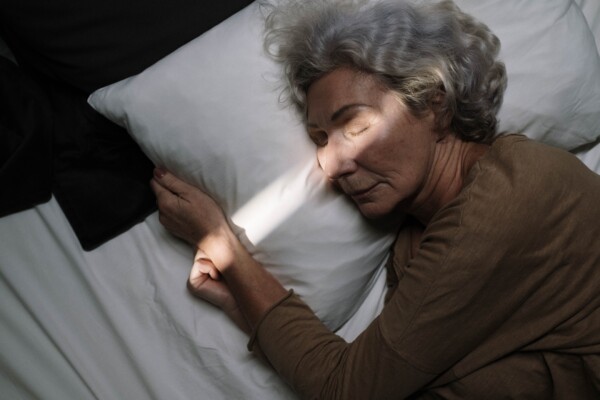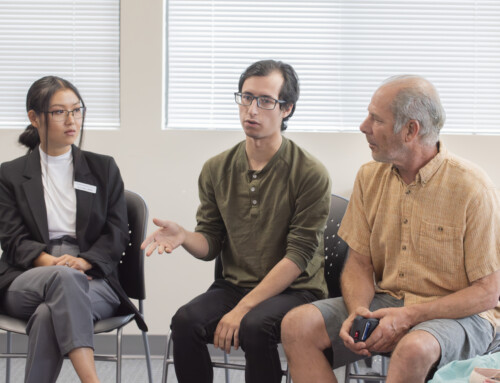
Reasons Why Dementia Affects Sleep
Sleep changes in people living with dementia can be related to chronic pain, depression, medication interactions or other health conditions. However, it can also be caused by changes in the environment; too little exercise throughout the day, confusion and other symptoms caused by brain changes.
Care Partners Need Sleep Too
Sleep challenges in a person living with dementia unfortunately means that care partners may also struggle to get a good night’s sleep. If sleep is an ongoing challenge, consider other options that ensure you are able to get the rest you need. Can a family member or friend alternate nights? Can day-time activities be adjusted? Is it time to discuss sleep changes with the physician?
Strategies for a Better Night’s Sleep
Enjoy the Day
- Wake up at the same time each morning.
- Stay engaged and physically active – consider our free weekly social activities.
- Get some fresh air and sunshine during the day.
- Keep naps to 15-30 minutes, especially in the afternoon.
Set the Environment
- Set up the room for sleep; low light, comfortable temperature.
- Consider a digital clock that shows whether it is day or night.
- If the person likes to cuddle, consider a soft toy or extra pillow.
- Try a warm or weighted blanket.
- Keep the room reserved for sleep and quiet time.
- Avoid television, electronics or other activities in bed.
Prepare for Sleep
- Establish a consistent and relaxing bed-time routine to help signal that it is time for bed.
- Use the bathroom before getting into bed.
- Avoid caffeine, alcohol, liquids and sugary snacks 2 hours before bed.
Managing Sleep Interruptions
- Don’t argue – instead, ask what they need.
- Offer a gentle reminder that it is night time.
- If they feel the need to get up and pace, avoid restraining or stopping – instead, allow it under your supervision.
Other Tips
- Ensure the person has no aches, pain or other discomfort.
- Stick with a person’s Circadian rhythm if possible.
- Try a sleep journal to monitor changes.
- Be cautious of over-the-counter “sleep aids.”
- Consider making a doctor’s appointment to determine if any medical issues or medication interactions are causing sleep disturbances.
- Try a sleep journal to monitor changes.
For more information, call us at 858.492.4400 to speak with one of our dementia experts (Spanish speakers available). Also check out our free education classes, social activities, care partner support groups, & more.
RECOMMENDED: Why do people living with memory loss repeat things?
Posted on May 27, 2024






